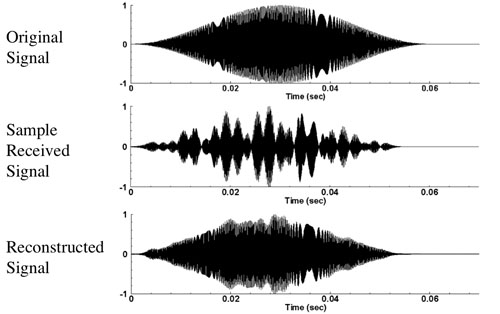Research: Blind Deconvolution in Reverberant Environments

Sponsor: Office of Naval Research
The US Navy uses sonar for detection, classification, localization, tracking, and identification of remote unknown sound sources. Blind deconvolution is the name given to the task of estimating an unknown source's signal waveform from recordings made in an unknown environment. Blind deconvolution is an ill-posed problem; there are more unknowns than measurements. Thus, additional information must be used to correctly complete the task. The goal of this project is to develop robust means for blind deconvolution of signals recorded in unknown multipath environments. Successful blind deconvolution in underwater environments is possible when the requisite additional information is obtained from the properties of the propagating modes or acoustic rays that link the remote source with the receiver(s).
References:
Sabra & Dowling, JASA 116, 262-271 [2004].
Sabra, Song & Dowling, JASA-EL 127, EL42-EL47 [2010].
Abadi, Rouseff & Dowling, JASA 131, 2599-1610 [2012].
Abadi, Song & Dowling, JASA 132, 3018-3029 [2012].
Abadi, Thode, Blackwell & Dowling, JASA 136, 130-144 [2014].
Flynn & Dowling, JASA 143, 1093-1101 [2018].
Flynn & Dowling, JASA 145, 3039-3047 [2019].
Current Research Projects
1. Predictions of Acoustic Uncertainty
2. Blind Deconvolution in Reverberant Environments
3. Nonlinear Techniques for Remote Sensing
4. Acoustic Diagnostics for Reverberant Environments
Recent Research Projects
5. Acoustic Coherent Backscatter Enhancement
6. Simulations of Washing Machine Processes
7. Turbulent Boundary Layers At High Reynolds Number
8. Multi-dimensional Measurements of Velocity during Thermoplastic Injection Molding
9. Beyond Line-of-sight Acoustic Sensing
10. Measurements of Oil-film Thickness